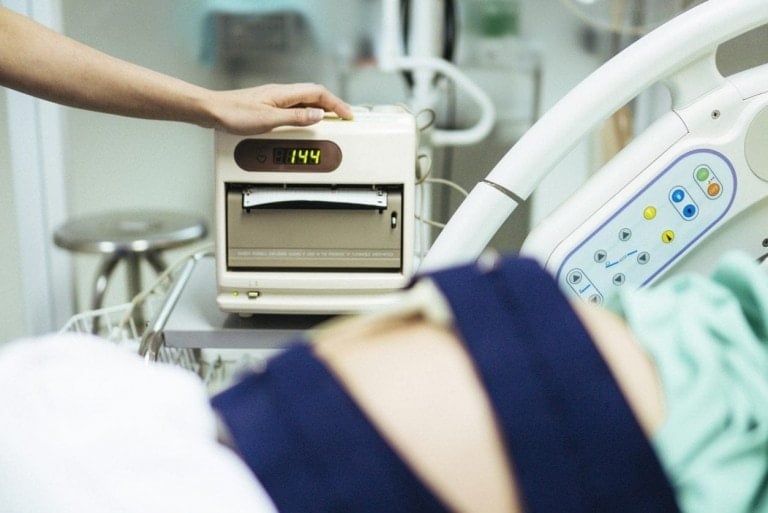An essential nutrient for building strong bones, calcium in pregnancy is vital. Not only does it support the growth and development of your baby’s skeletal structure, but it also ensures adequate bone health in the mom. Moms at risk of inadequate calcium intake throughout pregnancy are also at risk for bone loss and osteoporosis later in life.1
Are you curious how you can help your baby’s teeth and bones grow while preventing bone loss for yourself? Here we share information about calcium in pregnancy, including the recommended dosage, the best food sources, and whether supplementation of calcium in pregnancy may be necessary.
What Is Calcium?
Calcium is an essential mineral that helps build strong bones and teeth. Calcium also plays a crucial role in bodily functions, including muscle function, nerve transmission, and blood clotting. About 99% of the calcium in the body is stored in the teeth and bones, with the remaining 1% circulating in your blood.2,3,4,5
Your body cannot make calcium, so it must be obtained from food or supplements. Although dairy products are widely known for their high calcium content, foods such as dark leafy greens, salmon, and fortified cereals also contain calcium.6
Why Is Calcium Important in Pregnancy?
There are multiple reasons calcium is vital during your pregnancy, such as the following:
Bone Health
Calcium helps build strong bones and teeth for babies while keeping mothers’ stores adequate. If a mother’s calcium intake is not sufficient to meet her baby’s needs to accommodate rapid skeletal growth, a mother’s calcium reserves will be utilized, resulting in calcium depletion and the potential for bone loss.7
Fetal Heart Rate
Calcium plays a crucial role in cardiac rhythms. Having adequate calcium in your bloodstream during labor is essential to maintain a proper heartbeat for both mom and baby.8
Reduced Risk of Preeclampsia
Preeclampsia is a pregnancy complication involving losing protein in the urine, high blood pressure, and swelling of the legs and feet. It is a common cause of preterm birth and can lead to fetal growth restriction. A meta-analysis of 13 randomized controlled trials found that calcium supplementation of 1,000 mg daily starting mid-pregnancy helped reduce the risk of preeclampsia. The authors suggest that those at high risk for preeclampsia, and those with low dietary calcium intake, may benefit most from supplemental calcium.9,10
Decreased Risk of Preterm Delivery
Adequate calcium intake and stores may help decrease the risk of preterm delivery. Calcium plays a role in muscle function. And adequate calcium stores reduce smooth muscle contractility, helping to prevent preterm labor and delivery.11
How Much Calcium Do You Need in Pregnancy?
Although it is a vital nutrient throughout pregnancy, surprisingly, calcium needs do not increase. However, maintaining adequate calcium stores is essential. Current recommendations are to obtain at least 1,000 mg for pregnant and breastfeeding women and 1,300 mg if you are a teenager.12
Calcium needs can be met through diet. However, those with lactose intolerance, dairy allergy, or who avoid dairy products are at a higher risk for inadequate calcium intake. Supplementation may be necessary for those who cannot meet calcium requirements through diet alone or are at risk for a calcium deficiency.2
Ways To Add Calcium to Your Diet
Calcium is found in various foods, from dairy products and dark leafy greens to fish and fortified cereals. Eating different calcium-rich foods is the best way to meet your calcium needs throughout pregnancy and other essential nutrient needs. Additionally, getting enough vitamin D is crucial to help increase calcium absorption.2
While most calcium consumption comes from dairy products, calcium is found in various other foods. Knowing this can benefit moms-to-be who may develop an intolerance to dairy during pregnancy or while breastfeeding.
Foods rich in calcium include:2
- Milk, yogurt, and cheese
- Canned sardines and salmon with bones
- Dark leafy greens such as spinach, kale, collard greens, and broccoli
- Chia seeds
- Fortified cereals, bread, and pasta
- Fortified beverages such as soy milk, orange juice, and other fruit juices
Aiming for four servings of calcium-rich foods daily can help you meet your calcium needs in pregnancy through diet alone.
Should You Use Supplements for Calcium in Pregnancy?
Your body cannot make calcium alone, so you must get it from your diet or supplements. Women with a dairy allergy or lactose intolerance or those who avoid dairy products may be at an increased risk of inadequate calcium intake and may benefit from a supplement.
Calcium supplements come in two forms:13
- calcium carbonate
- calcium citrate
Calcium carbonate contains a high concentration of elemental calcium. Because it may cause some stomach upset, it is best taken with food. Calcium citrate contains less elemental calcium per tablet. However, it is better tolerated by those with digestive issues and should be taken on an empty stomach between meals.13
To best optimize calcium absorption, supplement your calcium with vitamin D or vitamin D-rich foods. Additionally, when taking a calcium supplement, be aware that calcium competes for absorption with iron. Take calcium supplements separate from iron and iron-rich foods to prevent interference with iron absorption.14
Before adding any supplement to your diet, consult your healthcare provider about whether it is right for you.
Calcium in pregnancy is essential for moms-to-be to support the growth and development of their baby and prevent bone loss. Most pregnant women can achieve an adequate intake of calcium through diet alone. However, if you avoid dairy, consuming other calcium-rich foods in your diet may take extra effort to ensure the proper intake. If you are at risk for low calcium intake or preeclampsia, discuss with your healthcare provider whether adding a calcium supplement may be right for you. And remember, when adding a calcium supplement to your diet, take it separately from an iron supplement or iron-rich foods.































